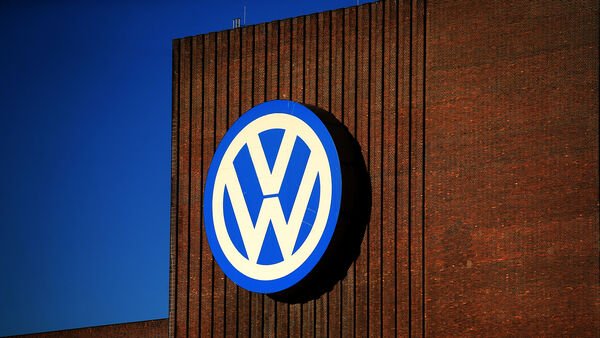It was intended as joke for the promotion of a new electric car but instead of smiles, Volkswagen ended up raising hackles, CNN reported. The luxury car maker is in a spot over its “Voltswagen” name change marketing gag and according to commentators it could mean some trouble with the authorities. They say it could be construed as a breach of US securities law over attempts to mislead investors.
Volkswagen Gag Could Land It In Trouble With SEC Say Analysts
According Charles Whitehead, Myron C Taylor Alumni Professor of Business Law at Cornell Law School, it was not the sort of thing expected from a responsible global company.

The carmaker was in the spotlight earlier this week after it announced that in America at least, it intended to switch to Voltswagen, its new name which would be used in ads and on the electric vehicles it rolled out. Backtracking later, it said it was definitely not changing its name and the announcement was an April Fools’-inspired marketing ploy.
Releasing a statement, Wednesday, it explained that Volkswagen of America had implemented and developed a marketing campaign to draw attention to its e-offensive and the launch of ID.4 its new all-electric SUV in the US.
But the gag failed to work as intended as people took the first, untrue name change statement seriously.
Wall Street analysts saw in it the company’s change of strategic direction in a guidance for readers. In a note to investors Wedbush analyst Dan Ives said Tuesday morning that the move underscored VW’s clear commitment to its EV brand and went on to assess of the market opportunity for electric vehicles in the United States, China and Europe in the coming years.
Volkswagen had, no doubt, made heavy investments in electric vehicles, but the name change joke could be confusing and could invite the Securities and Exchange Commission’s inquiry or legal action from investors who felt misled by the joke. Under the Securities Exchange Act companies are prohibited from misleading or false statements to investors.
According to Jonathan Richman, a partner at law firm Proskauer, it was a great illustration of the media’s power and why an amount of circumspection in making statements was required as one did not know what would or would not move a market. He added from Volkswagen’s point of view, it was intended to amuse, but what could amuse one person could be another person’s loss or profit.
Furthermore, in the backdrop of the 2015 diesel emissions scandal the company had been looking to live down, the status of a business that the carmaker had positioned as more environmentally friendly would also not go down well with investors, according to commentators.
Whitehead said the SEC would surely inquire. He added it had garnered enough publicity and there were concerns among people about it. He added there were issues about whether it was okay for companies to be doing it. He added, the SEC would likely make a phone call.
According to a Volkswagen representative from its headquarters, the SEC had not contacted it while the SEC declined comment in the matter.
Commentators pointed out that there was a precedent for the SEC taking action against big companies’ cheeky statements. In 2018, the SEC settled with Tesla CEO Elon Musk for $20 million after the agency found that investors had been misled by his tweet about securing funding for taking the company private at $420 a share, which apparently was a joke about weed.
According to Whitehead, the SEC’s investigation into the Voltswagen joke would likely take into consideration whether the statement was aimed at manipulating the stock price of the company or whether a name change ( or a joke of the change) would be considered material information by investors.

